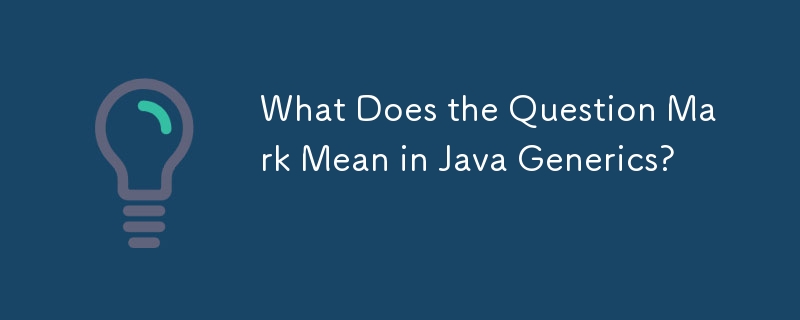

Understanding the Enigma of Generics' Question Mark in Java
In Java, the question mark in generics' type parameters denotes a crucial concept known as parameterization. Let's delve into the meaning behind this elusive symbol.
The ? extends operator represents a wildcard that stands for "a class or interface that extends HasWord." This means that any object that is either an instance of HasWord or extends it can be assigned to a type parameter of this kind.
For example, the code snippet:
List<? extends HasWord> wordList = toke.tokenize();
indicates that the wordList can hold a list of objects that either belong to the HasWord class or one of its subclasses. This versatility allows for greater flexibility in code design.
It's important to note that the ? extends operator is often used in scenarios where a method expects an input of a specific type or a subtype of that type. This allows the method to handle a broader range of input objects.
Conversely, the ? super operator denotes a wildcard that represents a superclass of HasWord. This means that any object that is a superclass of HasWord can be assigned to a type parameter of this kind.
The use of wildcards helps strike a balance between type safety and code flexibility. It enables programmers to define generic methods or classes that can operate on a wide range of object types without sacrificing type checking.
The above is the detailed content of What Does the Question Mark Mean in Java Generics?. For more information, please follow other related articles on the PHP Chinese website!




